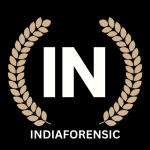Companies Act 2013 is likely to open the doors of opportunity for the forensic accountants. Article which published in the Business Standard speaks about the growing scope of the certifications in forensic accounting in India.
If you thought only a chartered accountancy programme will help you become an auditor, looking into a company’s books both from the financial and the forensic angle, you might be wrong. Courses particularly pertaining to forensic auditing are now available in India that cater to the forensic accounting and auditing segments.
Organisations such as education and training provider Indiaforensic, Institute of Chartered Accountants of India (ICAI) and Association of Chartered Certified Accountants (ACCA) provide courses on forensic auditing that will have individuals act as watchdogs in companies.
Mayur Joshi, director, Indiaforensic.com said the introduction of the Companies Act, 2013 has a significant impact on fighting and preventing frauds. Under section 245 (1g) of the new Companies Act, depositors and members of a company can claim damages from auditors, management and other consultants for the wrongdoings by the company and its management. Many consultants and senior executives are expected to become part of the certified community.
Further, under section 140 the auditors and their firm would be jointly liable for any frauds in the books of accounts and many auditors are likely to become forensic accountants in the days to come to avoid being caught on the wrong foot.
Joshi said under section 149(12), independent directors would be held liable for the frauds in their knowledge and “we envisage that there would be a number of independent directors who would be looking to understand the techniques of fraud investigations by way of training and certifications”.
Indiaforensic offers the programme for certified forensic accounting professional (CFAP). CFAP is a person who has undergone training to become an expert in the field of forensic accounting, forensic auditing, litigation support and investigative accounting. CFAP is a designation awarded by Indiaforensic Centre of Studies and moderated by the forensic accounting research foundation.
Generally, applicants for CFAP certification have a minimum of a bachelor’s degree and should possess at least three years of professional experience, and it is a programme of 180 days at Indiaforensic.
Under section 177 of the Companies Act, 2013, the audit committee will have the authority to investigate and the power to obtain professional advice from external sources and have full access to information in the records of companies. “This section is going to see more references to the certified forensic accounting professionals, and the workload of existing certified forensic accounting professionals to grow up,” said Joshi.
Students who are interested in the scholarship program offered by the Indiaforensic Center of studies can also apply here
The Act also said the central government shall, by notification, establish an office to be called the Serious Fraud Investigation Office (SFIO) to investigate frauds relating to a company. The SFIO shall be headed by a director and consist of such number of experts from the fields like banking, taxation and forensic audit among others.
Joshi said in the past few months after the buzz of the changed Companies Act, there has been a significant jump in the membership levels.
Similarly, the Association of Chartered Certified Accountants (ACCA) also has a Certificate Course in Forensic Accounting. ACCA India said the curriculum is based on global standards and, hence, it ensures that their accountants are ready for all areas of accounting and finance. Depending on previous exemptions, a student can take from 1 year to 2.5 years to complete the course.
Forensic accountants investigate fraudulent activities, uncover money laundering and find missing assets through a combination of investigative techniques and accountancy skills. As an investigation may lead to judicial proceedings, forensic accountants need to work closely with and sometimes take instruction from legal teams and organisations.
The Council of the Institute of Chartered Accountants of India, recognising the need for forensic accounting and fraud detection in the emerging economic scenario has decided to launch a certificate course on the subject.
Demand for forensic accounting and fraud detection specialisation is increasing, considering the rising incidents of cyber crimes and frauds detection.
The starting salary of a professional in the space is Rs 3-5 lakh, said Sunil Goel, director of human resource firm GlobalHunt. He explained the big four accounting firms recruit such professionals and train them for specific forensic audit roles.
International bodies like the CFA Institute have built forensic auditing into its curriculum. Manoj Bahety, chair, advocacy Committee, IAIP-member society of CFA Institute explained the institute’s CFA programme has a good portion on financial shenanigans that would cover various aspects of forensic auditing and closer examination of a company’s books.


